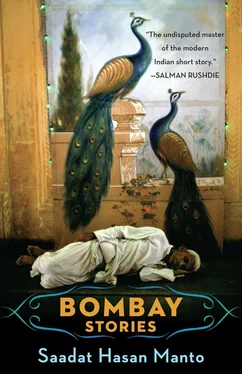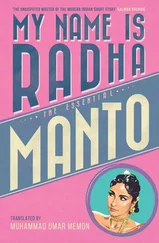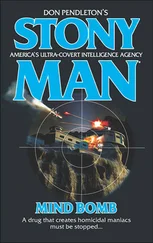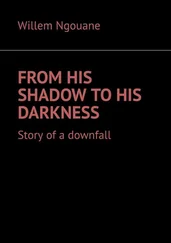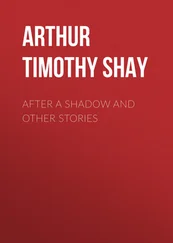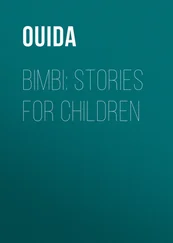Shortly after Manto went to Bombay, his mother moved there as well. She went to live with his only full sibling, his elder sister Iqbal, in the suburb of Mahim. 33His mother was eager to see him married, and in 1938 Manto became engaged to his future wife, Safiya, the daughter of a Lahore family of Kashmiri descent. 34Their wedding did not take place until April 26, 1939 since Manto continually procrastinated because of his inability to support her financially and the uncertainty he had about his ability to be a good husband. 35But to his own surprise, Manto took to being a husband. In May 1940 Safiya gave birth to a son, Arif, and Manto’s life as a father began, though this would be bitterly truncated when the toddler died the following April. 36
Manto worked at the Clare Road offices of The Painter . Upon his arrival he slept in the office of the newspaper and continued to do so until he had enough money to rent a room in a squalid building nearby — a two-storey building with holes in its roof, forty narrow rooms, and only two bathrooms, neither of which had a door. 37He lived in these conditions — which caused his mother to cry when she first came to his room — until ten days before Safiya was to move in with him, at which point he hurriedly rented a room nearby. 38In August 1940 Nazir Ludhianvi suddenly fired Manto from the newspaper, 39and Manto then took up the editorship of Babu Rao Patel’s film magazine Caravan . Not even seven months had passed, though, when he grew dissatisfied with that job and accepted a position at All India Radio in Delhi.
During these years, Manto not only worked at editing jobs but also wrote stories and radio plays. 40He published his first full collection of short stories, Sparks , as well as Short Stories . 41Just as importantly, Nazir Ludhianvi introduced him to the film world where Manto soon began to work as a scriptwriter.
Manto’s first job in the film industry came at the Imperial Film Company, and his first film credits appeared in the 1937 film Village Girl whose script and dialogue he wrote. 42As this was India’s first colour feature-length film, the Imperial Film Company had spent a considerable sum of money buying the required colour-processing equipment. When the film failed to make an impact at the box office, the company’s future fell into doubt. Nazir Ludhianvi intervened once again on Manto’s behalf and got him a job at Film City, where his pay jumped from forty to one hundred rupees a month. 43Yet when Seth Ardeshir Irani, the owner of the Imperial Film Company, learned that Manto had joined another studio, a tug of war developed. He wanted Manto back, and at twice his original salary Manto rejoined the Imperial Film Company. 44This reunion didn’t last long, though, because almost as soon as Manto returned, the company became insolvent. Manto’s work there ended with his having collected only eight months’ worth of his year’s pay. 45Manto then joined Saroj Movietone in June 1938, and yet this company’s finances were so thin that it also immediately threatened to go out of business. Seth Nanu Bhai Desai, the owner of the studio, secured new financial backing, and the studio was relaunched as Hindustan Movietone. Despite disputes with Seth Nanu Bhai over unpaid back wages, Manto would stay there until his abrupt departure for Delhi three years later. 46During his tenure there, Manto wrote the story for his second film Mud, a film that was later wisely renamed My Hometown .
Manto left Bombay for Delhi in 1941, and we might ascribe his departure to general malaise. His firing from The Painter , his dissatisfaction with his job at Caravan , the memory of the sudden death in June 1940 of his mother, 47his uncertain health, and the stresses of living in a big city without ever earning a stable income all combined to make the job at All India Radio sound appealing.
While in Delhi, Manto’s life as a writer improved. All India Radio was emerging as an outstanding literary venue, and Manto came into contact with many leading Urdu writers of the time. His job at the station was to produce radio plays, and he did this with great diligence, churning out plays in impressive numbers, and in his short time in Delhi he saw several collections of his radio plays published. 48Other aspects of his writing life flourished as well. Along with a volume of essays, he published a short story collection called Smoke . 49Unfortunately, Manto’s expectation that his health would improve in Delhi was not borne out, and his contentious and often oversensitive reactions to his colleagues eventually tired everyone involved. 50A series of events unfolded in his second summer in Delhi that would lead him back to Bombay: Nazir Ludhianvi once again offered Manto a position at The Painter , and Manto’s good friend Krishan Chander, who had originally offered him the job at All India Radio, left the station. When Upendranath Ashk — another noted Urdu writer with whom Manto shared an especially acrimonious relationship — took over Chander’s job, Manto couldn’t reconcile himself to the fact that Ashk would be editing his work. While the station readied to broadcast a version of Manto’s play ‘The Wanderer’ that was edited by Ashk, Manto unceremoniously quit. 51
Manto returned to Bombay. He resumed editing The Painter ; and upon the intercession of Shahid Latif, an old friend from Aligarh and husband of the influential Urdu short story and film writer Ismat Chughtai, he began to work for Filmistan, a film company where over the next six years he would meet many of the most famous actors, actresses, directors, and personalities of the film world. The next significant event in his life — and in the lives of all those in the subcontinent — came at the stroke of midnight, August 15, 1947, when India and Pakistan came into being. Safiya and the couple’s eldest daughter, Nighat, left for Lahore, but Manto stayed, joining Shahid Latif and the famous film actor Ashok Kumar in their attempt to revive one of the first great Indian film companies, Bombay Talkies. 52But trouble turned up there as well, when Kumar passed over Manto’s work, deciding instead to adapt an Ismat Chughtai short story into a film. 53Manto had a hard time accepting this decision. The perceived affront, coupled with increasing Hindu — Muslim communal tensions, made it difficult for Manto to see a future for himself in the changing political climate of Bombay, so he set out for Pakistan. He travelled by boat to Karachi and arrived in Lahore on January 8, 1948.
Thus began the last and the hardest era of Manto’s short life. The seven years he lived in Pakistan were characterized by indigence, severe alcoholism, and nostalgic reminiscences about the life he had known in Bombay. He never adjusted to his new environment. He wrote in the introduction to his volume of short stories Cold Meat (1950) about his sense of dislocation upon arriving at his new home:
For three months I was confused. I couldn’t figure out where I was. Was I in Bombay, at my friend Hasan Abbas’s place in Karachi, or in Lahore, where the Qaid-e-Azam Fund was being built up through proceeds from dance and music concerts being put on in a handful of restaurants?
For three months I couldn’t make up my mind about anything. It seemed as if three movies were playing simultaneously on one screen. Sometimes I saw Bombay’s shopping districts and alleyways, sometimes I saw the small trams of Karachi rushing past donkey-drawn carriages, and sometimes I saw Lahore’s noisy restaurants. I couldn’t figure out where I was. I would sit lost in thought all day. 54
In Pakistan he drifted through his days without steady employment, trying to maintain his dedication to being a serious writer but encumbered by poverty and a debilitating drinking habit. He adopted the habit of writing a story a day and going immediately to a magazine’s office to demand payment, only to spend this money on alcohol. 55He entered a mental institution in April 1952 in a belated attempt to cure his alcoholism, but this had no lasting results. 56Wracked by his disease, depressed about the uncertain status of his reputation, and distressed by his failure to provide for his family, he died on January 18, 1955.
Читать дальше
